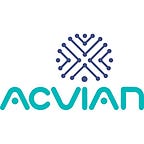Nowadays, all business organizations have the possibility to choose between several hiring options in order to enter foreign markets, with most countries having distinct employment laws and regulations, with possible consequences for non-compliance. Some foreign hiring options are more suitable to your business than others, depending on your international goals and expectations.
In this article, we are going to discuss the options for your business expansion and the pros and cons of each one.
Option 1: Independent contractor
As a non-employee, an independent contractor is a person providing services to the company on its own. As a result, private contractors need to pay their own social security contributions.
You will have to pay a variety of costs when you hire an employee that you don’t have to pay for independent contractors, including the cost of an employer-provided social security package. These fees, altogether increase the payroll cost burden of a company.
When hiring an independent contractor, you can control the quality of the result but not how work is performed. Contractors have flexible working hours to meet their clients’ needs.
In contrast, working with independent contractors has its own disadvantages:
- You have less control over the workers because contractors have autonomy over the execution of the tasks.
- You can engage contractors only for short-term projects not to receive misclassification fines.
- Independent contractor hire leads to increased misclassification risk. Each country has its own regulations and employee misclassification fines. For this reason, companies require a compliant agreement with independent contractors and the internal HR department to manage the workforce.
- Please note that the relationship between the company and the contractor is not regulated by the labor code. This leads to a risk of contract termination without any legal consequences.
Option 2: Foreign Legal Entity
When expanding overseas, you can proceed with a direct approach — to open a legal entity in the targeted country(-ies).
Generally, when you want to enter a foreign market, businesses have two options: a branch office and a subsidiary.
Foreign Branch office
Is not a separate legal entity but an extension of the parent company. Moreover, foreign branches are accountable to their head office and are deemed as an integral part of the parent company
In addition, your branch office may comply with the tax laws that apply to your parent company’s location and a parent company bears the legal risks of the branch office.
Foreign Subsidiary
Separate legal entity distinct from its parent company. It is an entirely independent legal entity created to do business in a specific country by another Incorporation located overseas. This means it operates under the tax laws of the target country. Due to this fact, the parent company does not bear the responsibility on behalf of the foreign subsidiary for filing the tax returns.
No matter which legal entity type you choose, registering a foreign branch or subsidiary can take up to 6 months with a statutory capital of 1000$-30,000$
Additionally, when managing a legal entity, one can face a headache with ongoing paperwork. The majority of companies are required to file annual reports on the company’s financial status. Tax returns, accounting records, and any required licenses and permits to conduct business are also included in ongoing paperwork.
Foreign legal entities are also very difficult to dissolve. The liquidation process takes from 6–12 months to complete. It also requires a significant amount of time and money. In the majority of cases, you have to appoint the liquidator who will be present at the location.
Option 3: EOR (Employer of Record)
Employer of Record (EOR) — is an intermediary between the employee and company. In other words, you do not have to set up a company in a foreign country, but hire your personnel through an EOR agent and run your business as usual but now being international.
The EOR provider has a legal entity to manage local payroll, employment and immigration, and others whatever required for successful employment.
Being your professional employment provider Acvian will take care of your workforce overseas and all HR related questions:
- Employee onboarding
- Local agreement drafting and approval
- Payroll setup and calculation
- Wages payment and payslips providing
- Benefits compensation and expenses reimbursement
- Tax filing
- Legal consultancy.
Rely on us your main HR activities, and we will take care of your workforce and assure full compliance.
Together with our powerful partnership base, we provide EOR and PEO services for 100+ countries
